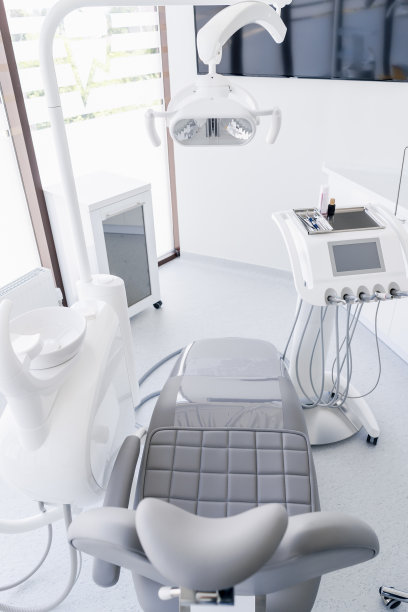Summary: Periodontal disease, often overlooked in discussions about health, plays a significant role in the well-being of individuals in modern society. This article aims to uncover the multidimensional impact of periodontal disease on overall health, emphasizing its links to systemic conditions, mental health, oral hygiene, and preventive strategies. By understanding these connections, individuals can take proactive measures in their dental care, potentially improving their overall health outcomes. This exploration seeks to provide a comprehensive view of how periodontal disease is not just a localized oral issue but a broader public health concern that warrants attention and action in todays world.
1. Systemic Health: The Overlooked Connection

Periodontal disease is more than just a condition affecting the gums; it has profound implications for systemic health. Research indicates that the bacteria responsible for periodontal issues can enter the bloodstream, potentially heightening the risk of various systemic conditions. For instance, individuals suffering from periodontal disease may experience increased incidents of cardiovascular problems, such as heart disease and stroke. The inflammation associated with gum disease is believed to contribute to these cardiovascular risks, drawing a direct link between oral health and heart conditions.
Moreover, the connection between periodontal disease and diabetes is equally significant. Diabetes can make individuals more susceptible to infections, including those of the gums, while periodontal disease can further complicate diabetes management by making it harder to control blood sugar levels. This bidirectional relationship emphasizes the need for integrated healthcare approaches that consider both oral health and chronic systemic diseases simultaneously.
Additionally, conditions such as respiratory disease and rheumatoid arthritis have been associated with periodontal disease. Infections within the mouth can travel to the lungs, resulting in pneumonia, especially in vulnerable populations. Similarly, inflammatory markers present in periodontal disease may trigger or exacerbate autoimmune responses, thereby linking oral health to conditions previously perceived to be unrelated.
2. The Influence on Mental Health
The relationship between periodontal disease and mental health is becoming increasingly acknowledged in recent studies. Individuals with severe periodontal disease often report symptoms of anxiety and depression, likely influenced by the chronic pain and discomfort associated with the condition. The struggle of living with oral health issues can severely impact self-esteem and social interactions, leading to an overall decline in mental well-being.
Furthermore, the inflammation caused by periodontal disease may also have a direct effect on mental health. Emerging research suggests that chronic inflammation can impact brain function and lead to cognitive decline. For people suffering from periodontal disease, the ongoing systemic inflammation might contribute to conditions such as depression, a growing concern in our fast-paced modern society.
Addressing periodontal health is crucial for improving mental health outcomes. By improving ones oral health through proper dental care and regular check-ups, individuals might experience enhanced self-esteem and social confidence, indirectly benefiting their mental health and overall quality of life.
3. Importance of Oral Hygiene Practices
Effective oral hygiene practices are paramount for preventing periodontal disease and maintaining overall health. Regular brushing, flossing, and dental check-ups can significantly reduce the likelihood of developing gum disease. Public health initiatives must prioritize education on proper oral hygiene techniques, especially in communities where access to dental care is limited.
Moreover, nutrition plays a critical role in oral health. A balanced diet rich in vitamins and minerals strengthens gum tissue and supports oral health. Foods high in sugar can lead to bacterial growth, increasing the risk of periodontal disease. Therefore, raising awareness about healthy eating habits in conjunction with effective oral hygiene practices can empower individuals to take charge of their health.
In addition, the role of regular dental visits cannot be overstated. Professional cleanings and examinations allow for early detection and treatment of periodontal issues before they escalate. This proactive approach not only improves oral health but also contributes to better overall health outcomes, emphasizing the necessity of routine dental care.
4. Preventive Strategies for Better Outcomes
Preventive strategies are essential for mitigating the impact of periodontal disease on overall health and well-being. Community outreach programs aimed at educating the population about the risks associated with neglecting oral health can be beneficial. These initiatives can provide information, resources, and access to regular dental examinations, particularly in underserved areas.
Additionally, promoting collaboration between dental health professionals and primary care providers can lead to more effective management of periodontal disease. By integrating oral health screenings into routine physical examinations, healthcare providers can ensure that patients receive comprehensive care addressing both oral and systemic health concerns.
Finally, technological advancements in dental care are paving the way for improved outcomes. Innovations such as tele-dentistry and AI-driven diagnostics can provide easier access to dental care and more personalized treatment plans. Encouraging the use of these technologies can help in early detection and prevention of periodontal disease, leading to a healthier society.
Summary: The connection between periodontal disease and overall health is a critical topic that requires more awareness and understanding. By highlighting its systemic implications, mental health effects, importance of oral hygiene, and preventive strategies, we can advocate for better health outcomes for individuals in modern society. Reinforcing the message that oral health is integral to overall health will empower individuals to prioritize dental care as part of their wellness journey.
This article is compiled by Vickong Dental and the content is for reference only
Vickong Dental
Vickong Dental is a large medical group established in Hong Kong in 2008 by professors from well-known medical universities in Guangdong and Hong Kong, as well as medical doctors from key national '985' universities (including Master's supervisors and senior professors). The chain of branches brings together expert dentists with PhDs and Master's degrees from Hong Kong and Mainland China, committed to providing high-quality dental treatment.
"Vickong Dental Practices the University Motto of 'Healing and Serving Society,' with a Stable Operation for Sixteen Years. It Has Been honored with Hong Kong Enterprise Leaders's Choice,' and is a Global Trusted Implant Center for the Nobel Implant System. Recommended by Hong Kong Metro Broadcast and Guangdong Television, it Serves Customers from Over Thirty Countries and Regions, Gaining the Trust and Favor of Citizens from the Guangdong-Hong Kong-Macau Greater Bay Area and Surrounding Cities.

Thousands of customers' unanimous praise
The most recognized and highly recommended dental service by customers in the Guangdong-Hong Kong-Macau Greater Bay Area
We Ensure You Receive Detailed Care and Attention Here
Hong Kong standards, Shenzhen prices, Your Trusted English-speaking dentists

Vickong Dental Medical-Grade Instrument Disinfection Process
Vickong Dental Medical-Grade Instrument Disinfection Process

Vickong Dental Chain: A Warm and Comfortable Environment for Treatment






Appointment Hours

Q&A
Why choose Vickong Dental?
Vickong Dental practices the university motto 「Medicine to Benefit Society」, with each branch bringing together highly qualified dentists with doctoral and master’s degrees from Hong Kong and the Mainland, and has maintained seventeen years of steady operation。Recipient of 「2024 Hong Kong Enterprise Leaders Brand」, 「2025 Hong Kong Enterprise Leaders Brand」, a Nobel Biocare Global Trusted Implant Center, and a brand recommended by Metro Radio Hong Kong and Guangdong TV。
To date, we have served customers from more than thirty countries and regions,earning exceptionally high word-of-mouth recognition and trusted recommendations from residents across the Guangdong-Hong Kong-Macao Greater Bay Area and surrounding cities
We have eight major branches in Zhuhai、Shenzhen,and a consultation and service assurance center in Hong Kong,so you can book a free consultation at any time for any questions,which is very reassuring.
If I do not accept the quotation after the CT scan, will I be charged??
No! As long as the actual treatment has not started, you will not be charged any fees.
Will there be any additional charges during the treatment process?
No, there won’t be any additional charges. Before treatment begins, we will clearly explain the treatment plan and its corresponding fees. Only after the patient agrees and signs the consent form will we proceed with the dental service.
Can I pay in Hong Kong dollars?
Yes. Vickong Dental accepts payment in Hong Kong dollars. The amount will be converted based on the exchange rate of the day, and the applicable rate will be clearly communicated to you in advance.
Can I reschedule my appointment at any time?
Yes. Please contact us via **WeChat** or **WhatsApp** as early as possible, providing your original appointment time and details, along with your preferred new date and time slot for rescheduling.













